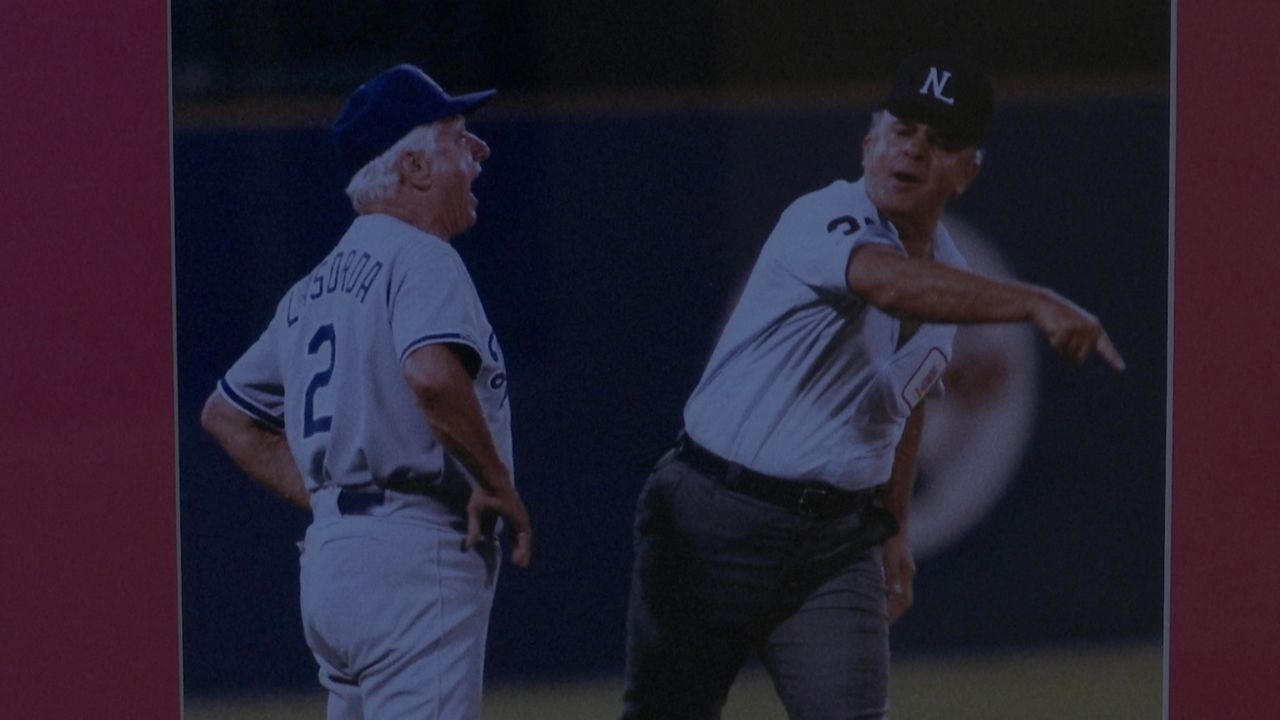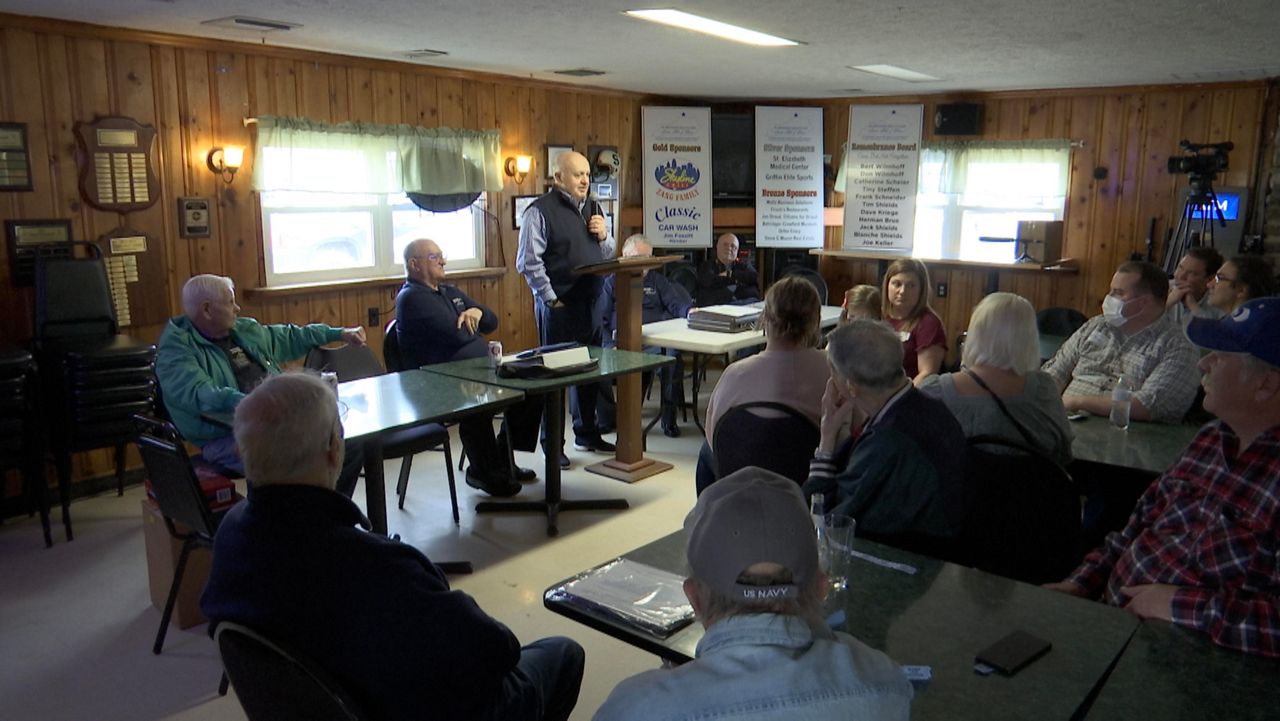ERLANGER, Ky. — After a life making some of the toughest calls in Major League Baseball, an umpire from Northern Kentucky is calling it a career—at least for the most part.
Marsh, a Covington native, worked as an MLB umpire from 1981 to 1999 and throughout both major leagues from 2000 to 2009.
As Randy Marsh spoke at the Northern Kentucky Sports Hall of Fame induction ceremony, an exclusive club he’s been a member of and a guest speaker for since the mid-80s, he thought back on an incredible career he had to work his tail off to achieve, and be tough enough to endure.
“I have an agreement with my wife that I don’t clutter up the rest of the house with all my baseball stuff,” Marsh said, as he gave a tour of his basement filled with memorabilia from his career. “Being an umpire, naturally you have to have good reactions, good vision, knowledge of the rules, and you have to be able to handle stressful situations.”
These aren’t average, everyday stressful situations.

These are ejecting Dodgers Manager Tommy Lasorda, one of the many pictures on Marsh’s walls.
“Tommy, he put on a show sometimes,” Marsh said.
These are calling Reds hitting legend Pete Rose out on strike three, which Rose didn’t take kindly to, and eventually led to a snowball effect of ejections for Marsh.
“Well, I thought he said one thing. He said he said another, but either way, I ejected him. That’s that picture over there,” Marsh said. “So, I got five people in one night. And the headline the next day was, ‘Obscure rookie umpire ejects baseball legends.’”
These are calling a close play at home plate in game seven between the Atlanta Braves and the Pittsburgh Pirates to send the Braves to the World Series in 1992.
“The Braves still use that for a lot of their opening of the games. They call it ‘The Play,’” Marsh said. “They made a three-person bobble head out of it. One of the first times they had done it.”
Marsh umpired in the World Series in 1990, 1997, 1999, 2003 and 2006, serving as crew chief for the last three Series, and in the All-Star Game in 1985, 1988, 1996 and 2006, calling balls and strikes for the 1996 game.
He is the tenth umpire in history to serve as crew chief for three World Series.
Marsh also officiated in nine League Championship Series (1989, 1992, 1995, 2000, 2002, 2004, 2005, 2007, and 2009) and in five Division Series (1998, 1999, 2001, 2003, and 2006). He had been a crew chief from the 1998 season until his retirement following the 2009 season.
Before that, he was a kid in Covington who loved one thing.
“I ate and slept baseball,” he said. “It was just nonstop.”
From umpiring Knothole baseball in Northern Kentucky and 13 years in the minor leagues to his first call up to the big leagues in 1981, that love never faded.
“I had been home from the umpire school, and I got a call saying you want to work that game? And I said yeah. So my first official professional game was at Crosley Field,” he said.
That’s the stadium the Reds, the team of Marsh’s childhood, used to play in. Through umpiring, Marsh met presidents, astronauts and one of his idols, Roy Rogers, to name a few.
He called games played and managed by some of the greats of the game of baseball, and occasionally was chewed out by them.
“Sometimes the only people that are on your side are the other three guys that are on the field with you. That’s umpiring,” he said. “What separates the men from the boys is being able to handle yourself correctly in those situations.”
“It can’t get personal. They can say it’s a bad call. They can’t say you’re a bad blankety-blank umpire. And if they cross that, they’re gonna be ejected.”

Through it all, along with his love of baseball, he kept his love for Northern Kentucky, where he still lives.
“And all the success he had umpiring world series, all-star games, everything, he would always come back and be a guest speaker,” said Joseph Brennan, President of the Northern Kentucky Sports Hall of Fame.
While Marsh said he’s now “99 percent retired,” he still helps with some Reds games, turning in computerized reports while watching umpires work. For someone who’s called so many outs, it’s hard to call it quits.
“I wouldn’t change a thing,” he said about his career. “No, I would not.”



